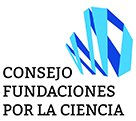Are you a scientific journalist or communicator and have difficulties in understanding and explaining epidemiological studies? Are you interested in knowing how inequalities, access to service, the place of residence and other social factors influence health? Do you want to know where to find reliable information on the incidence and prevalence of cancer, Alzheimer and other diseases? Would you like to find out to what extent we are affected by pesticides and industrial waste, and what are the contamination levels of toxic compounds in the Spanish population?
The Esteve Foundation and the Spanish Association of Scientific Communication organized a Seminar on epidemiology for journalists and communicators on 12 June 2014 at the Asociación de la Prensa (Press Association) of Madrid. The purpose of the seminar was to provide the essential key factors to understand epidemiological studies and to report on them accurately.
Epidemiological research is of particular interest to journalism and has considerable presence in the media, as it studies the influence on health and disease of all types of factors, from social to genetic elements, from diet and exercise to environmental factors. Apart from its wide range of interests, this discipline also uses a variety of both experimental and observational methods, and has a high statistical component. This means that epidemiological information is particularly difficult with frequent inaccuracies.
We are aware that epidemiology is of great interest to journalists reporting on health, the environment and science in general. This seminar therefore wishes to alert journalists to the limitations of many research studies and to the most common errors in news articles, in order to explain the statistical parameters presented by the results, to show where to find reliable epidermiological data, and in short, to offer the basic tools to interpret studies and interact with epidemiologists with greater autonomy.
The seminar had a participative and practical approach, and follows on from the Seminar on biostatistics for journalists and communicators organized in 2013. It included a workshop where real cases of epidemiological studies were analyzed, with their corresponding press releases and news articles appearing in the media. There was also a dialogue between journalists and epidemiologists, open to all attendants, to debate the influence of epidemiological studies and journalistic information in public health.
ADDRESSED TO
Journalists and scientific communicators.
COORDINATION
Gonzalo Casino is a scientific journalist. Doctor in Medicine from Universidad Complutense of Madrid, with a post-graduate degree in Biostatistics from the UPC. He was coordinator of health information for El País for a decade, and chief editor of Doyma/Elsevier Spain. He is director of the journal Técnica Industrial and collaborates with The Lancet and Intramed, plus other publications.
Esteve Fernández is a doctor in epidemiology and doctor in Public Health. He coordinates the Tobacco Control Unit of the Catalan Institute of Oncology, and he is professor of Epidemiology and Public Health at Universidad de Barcelona. He researches control and prevention of smoking, from its epidemiological, social and economical aspects. He is vice-president of the Spanish Society of Epidemiology (SEE) and was director of Gaceta Sanitaria (2004-2010).
PARTICIPANTS
Pablo Alonso specializes in Family and Community Medicine. He is an epidemiologist and researcher of Centro Cochrane Iberoamericano, in Barcelona. His research focuses on decision-making in patients and on the methodology of randomized clinical trials, systematic revisions and clinical guidelines.
Emilio de Benito a journalist specialized in health and science. He holds a degree in Chemical Sciences (Biochemistry) from Universidad Complutense of Madrid, and a master degree in Journalism from the Escuela de Periodismo Universidad Autónoma de Madrid/El País. He has been working as an editor of El País since 1999.
Carme Borrell is a doctor in epidemiology and doctor in Public Health. She is Head of the Service of Health Information Systems of the Public Health Agency of Barcelona. She is associate professor of the Master degree in Public Health of Universidad Pompeu Fabra and director of the journal Gaceta Sanitaria since 2010.
Erik Cobo studied Medicine in Barcelona and Statistics in Essex and Paris. He is professor of the department of Statistics and Operational Research of Universidad Politécnica de Cataluña (UPC) in Barcelona. He is editor of the methodology of Medicina Clínica and associate editor of Trials. He is co-director of the 100% online course of the UPC, Bioestadística para no estadísticos.
Ignacio Fernández Bayo has been a journalist specializing in science since 1980, with around 3,500 articles published in various media. He is director of the company Divulga since 2000, participating in a wide range of books, documentaries and exhibitions. Vice-president of the AECC.
Esperanza García is editor-in-chief of the SINC agency and vice-president of the AECC. She is graduated in Physics from Universidad Complutense of Madrid and holds a master degree in Journalism and Communication of Science, Technology and the Environment from Universidad Carlos III of Madrid.
Miquel Porta is doctor in Medicine and holds a master degree in Public Health. Researcher of the Municipal Medical Research Institute-Hospital del Mar, professor of Public Health of Universitat Autònoma de Barcelona and professor of epidemiology of the University of North Carolina at Chapel Hill (USA). He is co-editor of the book Nuestra contaminación interna. Concentraciones de compuestos tóxicos persistentes en la población española and editor of A dictionary of epidemiology. He was president of the SEE, the European Epidemiology Federation and Científicos por el Medio Ambiente.
PROGRAMME
Presentation of the seminar
Antonio Calvo, president of the AECC
Epidemiology and journalism: encounters and disencounters
Gonzalo Casino
What is epidemiology for?
Esteve Fernández
Which parameters should we know?
Erik Cobo
Is it true? Causality, confusions and bias
Miquel Porta
Workshop. Examples of epidemiological studies, press releases and news articles
Social epidemiology: people, the population and social determining health factors
Carme Borrell
Environmental epidemiology: contaminated inside and out
Miquel Porta
Fallacies in epidemiological research
Esteve Fernández
Where to find reliable epidemiological information?
Pablo Alonso / Gonzalo Casino
Debate on epidemiology, journalism and public health
Emilio de Benito, Carme Borrell, Gonzalo Casino, Ignacio. F. Bayo, Esteve Fernández, Esperanza García, Miquel Porta
Closing
Fèlix Bosch, director of the Esteve Foundation










